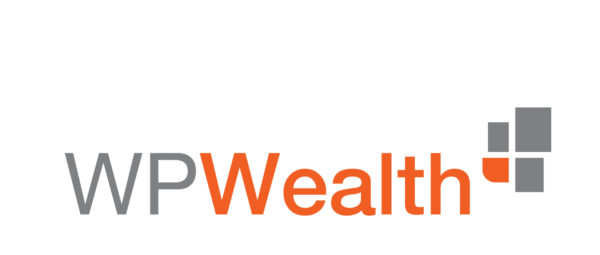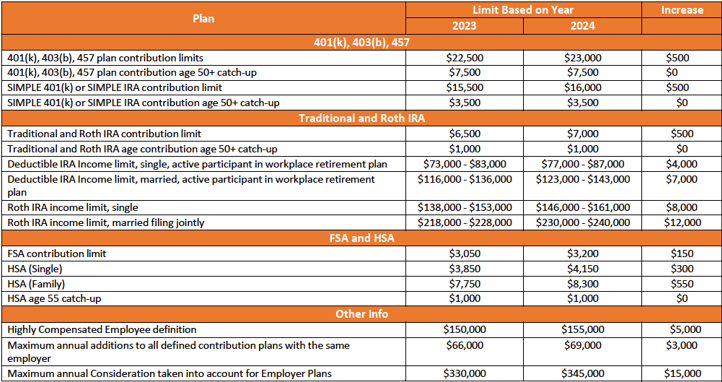The Internal Revenue Service (IRS) sets annual limits on the amount of money you can contribute to the various retirement accounts. Below is a comprehensive breakdown of plans and the updates to their contribution limitations for 2024.
Frequently Asked Questions about the 2024 Contribution Limitations
As you plan for your retirement, it’s important to stay informed. Here are some frequently asked questions to help you better understand the 2024 limitations and make informed decisions about your retirement savings.
What are the contribution limits for 401k plans in 2024?
The contribution limits for 401k plans in 2024 increased by $500. The maximum amount an individual can contribute to a 401k plan is $23,000. However, individuals who are 50 years or older can make additional catch-up contributions of up to $7,500, bringing their total contribution limit to $30,500.
Are there any income limits for contributing to a 401k plan in 2024?
While there are no income limits for contributing to a 401k plan in 2024, the IRS sets an annual compensation limit. For 2024, only compensation up to $345,000 may be considered for calculating employer contributions.
Can I contribute to both a 401k plan and an Individual Retirement Account (IRA) in 2024?
Yes, you can contribute to both a 401k plan and an Individual Retirement Account (IRA) in 2024. However, the contribution limits for each account are separate. IRAs are subject to income limitations. If your income exceeds the income limitations, contact one of our advisors to learn how you can still contribute to a Roth IRA.
For an IRA, the maximum contribution limit for individuals under the age of 50 is $7,000, with an additional catch-up contribution of $1,000 for individuals who are 50 years or older.
Can my employer contribute to my 401k plan in addition to my own contributions?
Yes, your employer can contribute to your 401k plan in addition to your own contributions. Employer contributions can come in the form of non-elective, matching or profit-sharing contributions. It’s important to check with your employer or plan administrator to understand the specific rules and limits for employer contributions.




